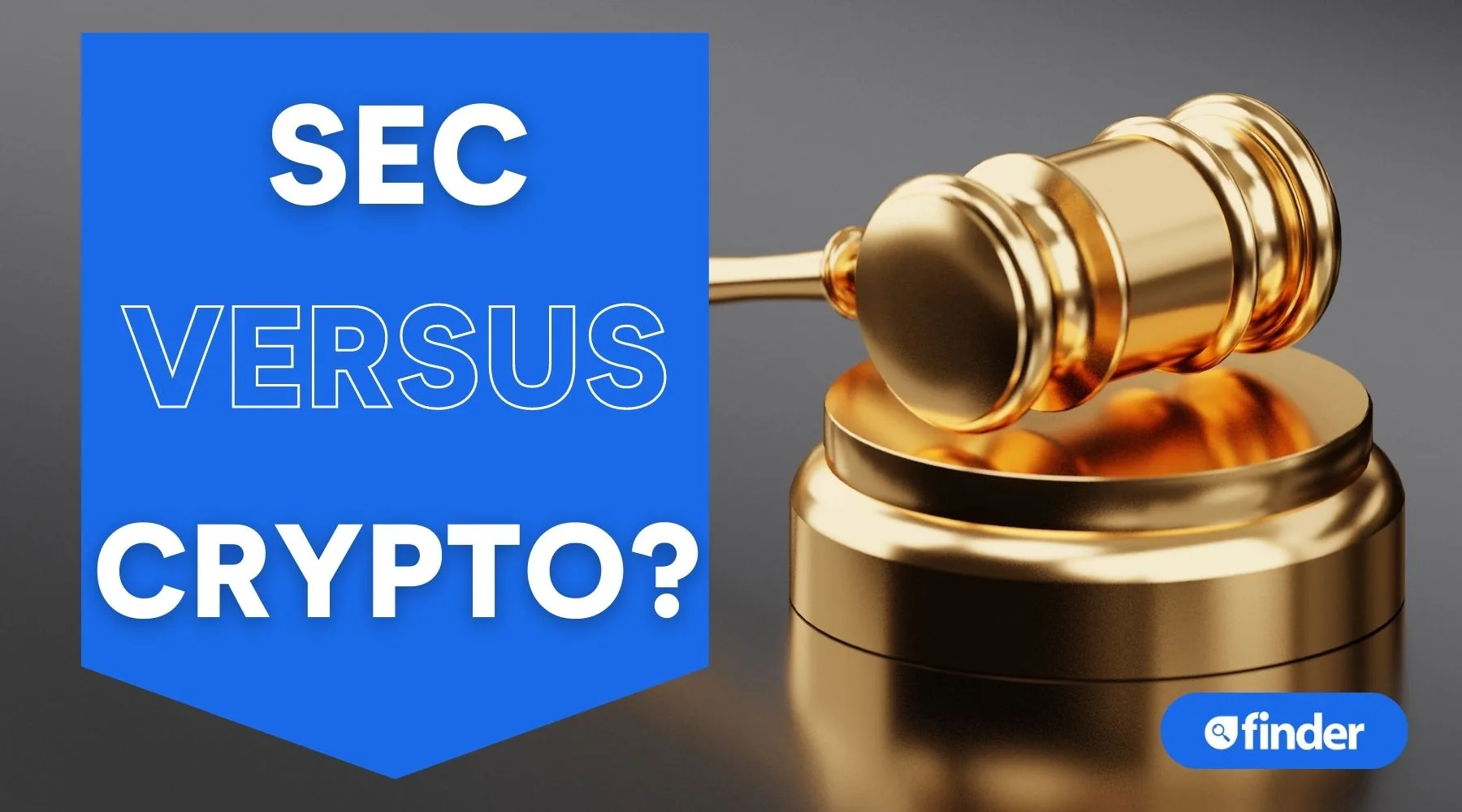The SEC sues Coinbase & Binance: Is this a legitimate war on crypto?

The SECs latest actions against Coinbase don't quite add up – here's why
The US Securities and Exchange Commission (SEC) continues its barrage of legal action on crypto companies today, charging Coinbase with operating an illegal securities exchange.
The SEC argues that a number of cryptocurrencies on Coinbase are actually securities, and therefore Coinbase has been operating without the required licences to facilitate trading of these assets.
The charges come less than 24 hours after the SEC charged the world's largest cryptocurrency exchange, Binance, with 13 counts of securities law violations.
There is an additional charge for Coinbase's staking programme, which allows users to stake proof-of-stake (PoS) assets like Ethereum (ETH) via the exchange in return for staking rewards.
Earlier this year the crypto exchange Kraken was fined $30 million for its staking service and forced to close the programme in the US.
Is this fair?
Many argue it's not.
Coinbase has been famously cooperative in their attempts to work with US regulators and create a clear compliance framework for cryptocurrency exchanges in the US.
In response to the charges, Coinbase released a short but poignant video of their recent efforts to work with regulators and the SEC in particular.
The numbers don't lie. pic.twitter.com/lec4wkp6RO
— Coinbase 🛡️ (@coinbase) June 6, 2023
Coinbase met with the SEC 30 times in 2022 requesting regulatory guidance. The company has been famously outgoing in its attempts to converse with regulators and has spent significant time and resources working with regulators.
They are arguably the Hermoine Granger of crypto companies.
As for the SEC, they reviewed Coinbase's staking-as-a-service feature when they approved their public S1 report. The service was mentioned 57 times in the report.
An S1 report is provided to the SEC for review when a company wants to become publicly listed on an exchange like NASDAQ, as Coinbase did in April 2021.
Coinbase's S1 report is over 200 pages long and completely outlines Coinbase's business structure, financials and any risks or potential legal issues. The SEC is required to review the report and ensure the information is accurate and in compliance with relevant securities laws.
The SEC may use this process to raise any potential issues with the company, its products or services.
Despite this, the SEC has waited more than two years to charge Coinbase with a securities law violation for a product that its own agency reviewed and raised no issues with.
Is this an ideological attack on crypto?
Despite their best efforts, Coinbase and several other crypto related companies in the US have been the target of continued and sustained efforts by regulators to hamstring the cryptocurrency industry in the USA.
Even Silvergate Bank, which famously provides banking to crypto companies in the US, was pressured to close down amidst the fallout surrounding Silicon Valley Bank (SVB).
"In light of recent industry and regulatory developments, Silvergate believes that an orderly wind down of Bank operations and a voluntary liquidation of the Bank is the best path forward," the company said in a statement.
This is despite the fact that Silvergate was not at threat of collapse, unlike SVB, but rather concerned with "regulatory developments".
The sustained nature of these actions against the industry has led thought leaders to coin the term "Operation Chokepoint 2.0", which refers to an alleged effort by US lawmakers to shutter the cryptocurrency industry in the US.
While this might sound like hyperbole or conspiracy, recent events make it reasonable to wonder whether the SEC's actions are politically or ideologically motivated, rather than grounded in concerns around consumer protection, as they often claim.
They didn't sue FTX. https://t.co/FVgi5l6VcI
— CZ 🔶 BNB (@cz_binance) June 6, 2023
Join the crypto conversation – Follow us on X now
Trying to get a handle on the markets? Cut through the noise with our overview of the best cryptos to buy right now, explore some strategies for how to trade crypto or see if there's a better platform for you with our guide to the best crypto exchanges.
Disclaimer: Cryptocurrencies are speculative, complex and involve significant risks – they are highly volatile and sensitive to secondary activity. Performance is unpredictable and past performance is no guarantee of future performance. Consider your own circumstances, and obtain your own advice, before relying on this information. You should also verify the nature of any product or service (including its legal status and relevant regulatory requirements) and consult the relevant Regulators' websites before making any decision. Finder, or the author, may have holdings in the cryptocurrencies discussed.
Disclosure: The author owns a range of cryptocurrencies at the time of writing.
Ask a question
